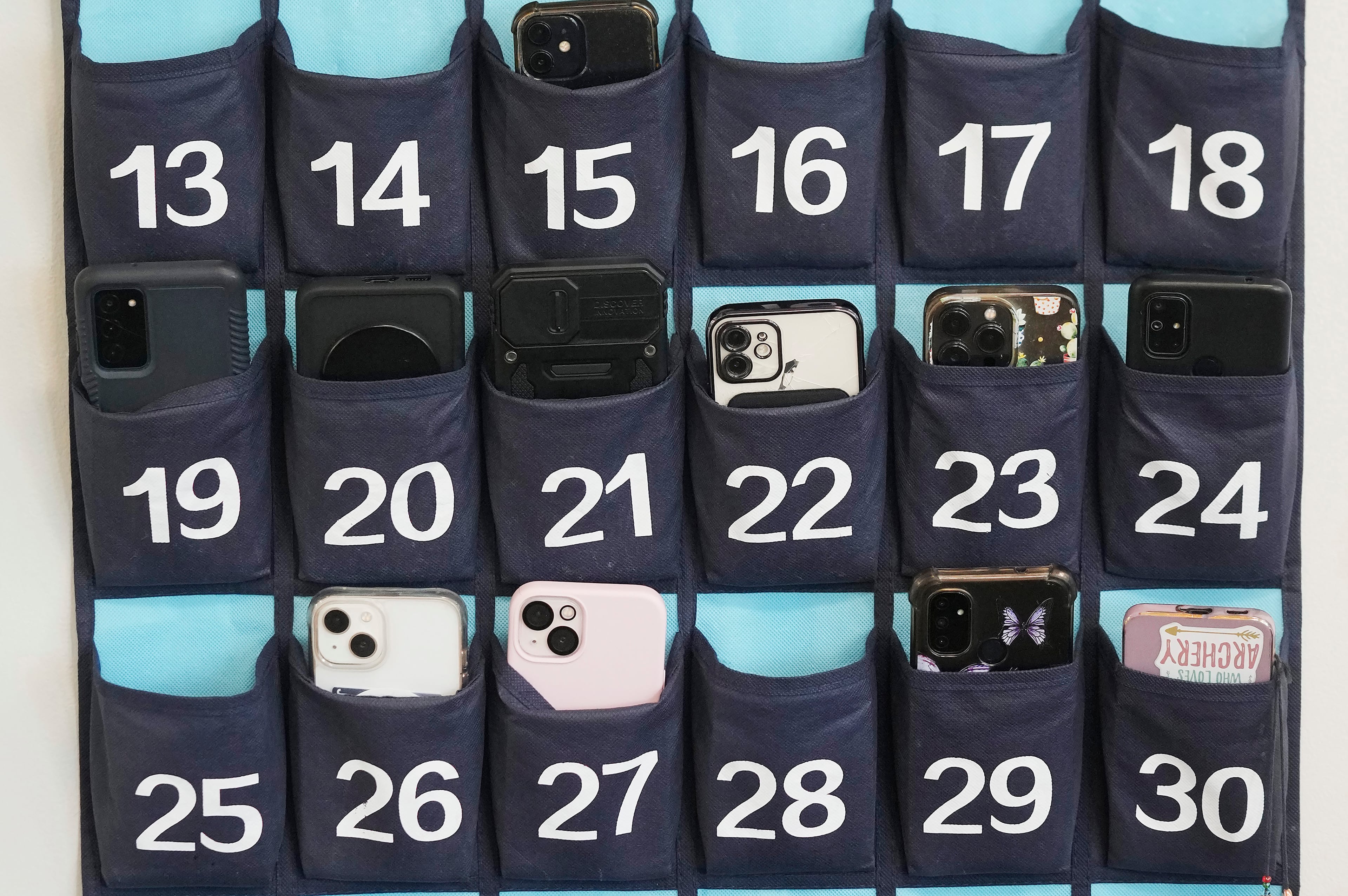Mom has one baby, then twins, then triplets
The three teenage daughters of Maritza Salinas were constantly after their mother to have another baby, a boy they could play with and spoil.
“We really wanted a baby brother,” 15-year-old Yazmin said.
Little did they know they would not have to fight over him.
On July 5, Maritza, 35, gave birth to triplets — three boys.
At 1:37 p.m., she first delivered Salvador (6 pounds, 4 ounces). One minute later, the smaller Julio (4 pounds, 8 ounces) was born. The third son, Miguel, took his first breath right at 6 pounds.
Julio and Miguel, born with full heads of black hair, are identical twins.
The threesome is unusual enough in itself — the odds of giving birth to triplets are one in 8,000.
But when you consider that Maritza’s second and third girls, Yazmin and Jennifer, are twins (one in 33 odds), it puts this Marietta stay-at-home mom and her family in pretty exclusive company.
Indeed, Dr. Ann Critz, medical director of the Emory University Hospital Midtown nursery for the past 30 years, said she has never seen it before: A perfect trifecta — without any fertility treatments involved.
The odds of giving birth to multiples naturally are rare. But the likelihood of a singleton, then twins, followed by triplets, is an extraordinary occurrence.
Georgia Tech math professor Howie Weiss lent some odds-crunching assistance. For the average woman the chances of having one, two and three babies (in no particular order) is about 1 in 44,000. But to give birth to one, then two, then three, the probability is closer to 1 in 264,000, according to Weiss.
The mathematician said it’s hard to calculate exactly what Salinas’ odds were because she likely faced better odds of having multiples than the average expecting mom. “It’s quite remarkable,” said Dr. Eric Brown, Salinas’ ob-gyn. “It wasn’t a medical feat. It’s a blessing more than anything else.”
Probing into the anomaly, Brown couldn’t find any others ever recorded.
Meanwhile, a couple days after her C-section, Salinas reveled in the reality of hitting the reproductive jackpot.
She cradled each baby, one by one, rocking them, kissing their cheeks.
Each baby was quite large for triplets.
All together, the triplets tipped the scale at more than 16 pounds. Born at 36 weeks and considered only slightly premature, the boys briefly needed breathing support and stayed at the hospital for about a week before going home. All three were thriving and doing well, according to Dr. Critz.
Big sisters Maritza, Yazmin and Jennifer smiled and snapped pictures. They also anxiously waited for their turn to hold the babies.
“We are so happy,” Yazmin said. “We don’t need to fight over them. We’ll each have one.”
Salinas, 35, was content with three children, but after marrying Isidoro Padilla about six years ago, she warmed up to the idea of having one more child. (Her daughters are from a previous marriage.)
Although twins run in her family (she has twin cousins and twin nieces), Salinas never imagined it could happen again. Last year, she stopped taking birth control and was pregnant the following month.
Early on in the pregnancy, Salinas wasn’t feeling well. Worried she might be suffering a miscarriage, she went to the emergency room.
Everything turned out to be fine. The pregnancy was going well, but there was one very big surprise.
An ultrasound revealed three heart beats inside her growing tummy. She burst into tears.
“I was relieved the babies were OK,” said Salinas, who is originally from Texas and whose first three children were born there. “I was also in shock that I was having triplets. But mostly I was happy.”
Salinas will continue to be a stay-at-home mom. Her husband works as a cook at a restaurant. She’s confident she will have the support of her three daughters, now of baby-sitting age.
Salinas plans to keep things simple. The babies will sleep together in one crib, and later side by side in one bed.
For now, the boys simply look to their mommy for all their needs. She plans to breast-feed the trio, and only supplement as needed.
Salinas got the green light to go home first, before her babies, but she decided to stay at the hospital to be close to her newborns.
“We have rooms for families in situations like this,” said Critz. “We can’t always accommodate everyone, but since she is going to try to breast-feed all three of her babies — which is pretty heroic — we wanted to be sure to try to accommodate her.”
Salinas’ family is now a family of eight. And Salinas said eight is enough; her days of getting pregnant are over.
“Otherwise, next time, I would have four,” she said, adding, “Oh no, I don’t think so!”


